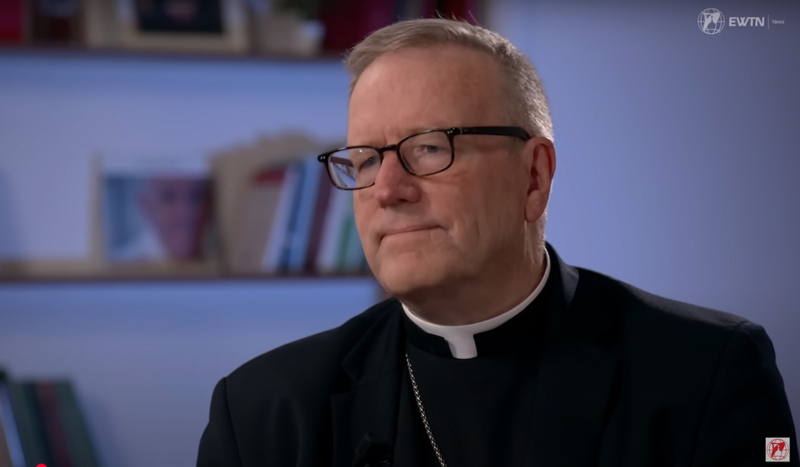
EWTN Video Screengrab / YouTube
CV NEWS FEED // Bishop Robert Barron this week wrote a column in Word on Fire explaining how consecrated men and women religious witness the truths of the Gospel to a world consumed with idolatry.
The Bishop wrote that next month, in his Diocese of Winona-Rochester, New York, he will celebrate a Mass honoring those in consecrated life.
“Part of the purpose of that Mass is to thank these good people for their dedication,” he wrote, “but a deeper purpose is to shine a light on them so that the world can see them more clearly.”
He contrasted the example of these religious, whose hearts are totally given to the Lord, to those who pursue worldly, superficial goods above all else. He brought up the example of a young North Korean soldier who had been killed in Ukraine and whose diary recently came to light.
The soldier had written, “I put on the military uniform of the revolution for the sake of protecting the Supreme Commander,” and later in the entry, “I will unconditionally carry out the orders of the Supreme Commander Kim Jong Un, even if it costs me my life.”
The Bishop commented, “I want to be perfectly clear that I have nothing whatsoever against honest patriotism or passionate love of one’s own country, and I’m certainly not questioning this young soldier’s sincerity. But what I find tragic is the narrowing of his heart’s desire, for the young soldier expresses a loyalty, not so much to his country, as to ‘the leader.’”
Bishop Barron called this example “an extreme case of a spiritual problem that is truly universal,” the problem of pursuing earthly goods above God.
He quoted Jeremiah 17:5-6, in which the prophet derides those who turn away from God to earthly things: “Cursed is the man who trusts in human beings, who makes flesh his strength, whose heart turns away from the Lord. He is like a barren bush in the wasteland . . . that stands in lava beds in the wilderness, a land salty and uninhabited.”
Bishop Barron then contrasted the worldly man with the godly man who trusts in the Lord, whom Jeremiah extolls in 17:8, saying that he is like, “a tree planted beside the waters that stretches out its roots to the stream . . . in the year of drought, it shows no distress, but still produces fruit.”
The Bishop wrote that consecrated men and women “are like trees whose roots go deep, deep into the ground, reaching all the way to the waters that bubble up to eternal life.”
He concluded, “And there are so many, languishing in the sadness of various forms of idolatry, who need to see that such a life as theirs [consecrated men and women] is possible.”

